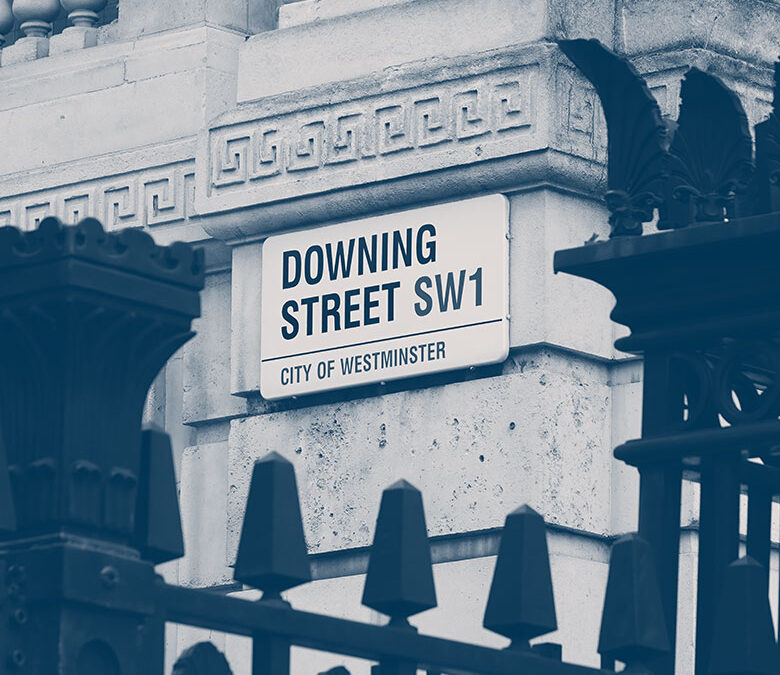

News and insights from the Verallo team
Anticipated tax changes under the Labour government: what you need to know


In the recent Election, Labour secured victory with a pledge not to raise taxes on “working people.” However, with their manifesto outlining their fiscal plan to increase tax revenue by over £8.5 billion annually by the end of the parliamentary term, questions are being raised about the sources of this additional revenue and which groups will be most affected by the tax increases.
To help answer some of these questions, Verallo hosted a post-Election drop-in day led by Managing Partner, Paul Overall and myself. Here we offered free tax advice to businesses and individuals alike, supporting them in understanding proposed tax reforms and changes that may impact them, as well as ways to prepare for impending legislative changes.
With changes not expected to take effect until Labour’s first Budget this October, these one-to-one sessions delved into several key areas of tax reform anticipated under Labour’s leadership, as outlined in their Manifesto:
- Corporation Tax
- Income tax
- Capital Gains Tax
- Tax Relief adjustments
- Inheritance Tax
- Environmental and green taxes
- Nom-doms
- VAT
In this article we share a comprehensive summary based on the anticipated changes under a Labour government, as well as insights shared during the drop-in day.
One Budget each Autumn
Labour have stated that major tax announcements will only be made once a year each Autumn. The aim is to release the Budget a minimum of four months before the new tax year, with an aim to give both businesses and families ample warning of impending tax and spending policy changes.
The first of these annual Budgets will be presented this October, during which Labour’s policies will be confirmed and implemented.
Income Tax increases
Although Labour has promised not to raise income tax rates, they will keep income tax thresholds frozen until April 2028. This means that as people’s incomes increase, a larger portion of their income will be taxed, and more of their income will fall into higher tax brackets, resulting in higher overall tax payments.
Private equity fund managers are also likely to be significantly impacted by Labour’s proposals. Currently, the carried interest of private equity fund managers is subject to capital gains tax (CGT), but Labour plans to tax it as income instead. Nonetheless, the new Chancellor of the Exchequer, Rachel Reeves, has indicated that capital gains treatment might still apply where private equity managers are in the situation where they are “putting their own capital at risk.”
Capital Gains Tax uncertainty
There is much speculation around CGT increases. Although Labour assured the public that those selling their main home would not be subject to CGT during the Election process, Starmer has since not ruled out the possibility of increasing CGT, whilst stating that all proposed plans are fully funded and will not require further tax rises in addition to proposed plans.
October’s Budget will bring a clear conclusion to speculation. In the meantime businesses can seek advice and support to explore ways to utilise allowances and reliefs, aswell as strategies to offset any changes to CGT, should changes take effect.
Inheritance tax overhaul
IHT is another area of anticipated reform. The key mention in Labour’s manifesto is a promise to end the use of offshore trusts as a way to avoid IHT. This comes as a key reform to the Conservative’s 2018 report which outlined the protection of assets from tax via offshore trusts.
Additional changes we may see are likely to be with business property and agricultural property relief, although we won’t have a definitive answer until the Budget is released this Autumn.
Business tax increases
Labour’s 5-year roadmap is expected to be published within the first 6 months of their tenure. This roadmap will outline key policy changes aiming to ‘help businesses to plan investments with confidence.’ It will also give guidance on investment allowances and what qualifies for expenses.
VAT changes
The key proposal for VAT is ending the VAT exemption for private schools. Although Starmer initially stated that VAT would start to be applied to school fees with immediate effect, Reeves has more recently said that we will see this change applied starting January 2025. However, it is more likely that this change will more likely be applied in September 2025.
In addition, there is a lot of speculation around how Labour would achieve their mention of ‘retrospectively taxing advanced payments’ under the current VAT law principles and so details are eagerly awaited from the impending Budget announcements.
Stamp Duty Land Tax surcharges
Labour plans to increase the surcharge paid on top of SDLT rates from 2% to 3%. This will apply to non-UL residents buying residential properties in England and Northern Ireland.
Revisions to Tax Reliefs: Scrutiny and Reduction
Labour’s agenda includes a thorough review of existing tax reliefs, with a focus on reducing or eliminating reliefs deemed less effective or overly generous. Key areas under scrutiny may include:
- Business Asset Disposal Relief (formerly called Entrepreneur’s Relief)
- R&D tax credits
Windfall tax levy
There are 3 key changes proposed for the Energy Profits Levy that is applied to profits of oil and gas producers. The first is to remove investment allowances of oil and gas companies, the second is to extend the current levy for the next 5 years, and the third is to increase this levy by 3% points.
Non-doms reform
The Conservatives proposed reform to the non-dom tax regime as outlined in the Spring Budget remains unlegislated. As a result, this draft legislation will most likely be re-written to include Labour’s proposal to “abolish non-dom status once and for all, replacing it with a modern scheme for people genuinely in the country for a short period.”
Reducing tax avoidance
Labour has placed a large commitment to activities aimed to reduce tax avoidance.
In order to help close the tax gap Labour have pledged to:
- Strengthening HMRC compliance through recruitment and training over 5,000 employees.
- Transforming the tax system with technology investments.
- Introducing changes to tax evasion laws.
- Increasing the number of reportable schemes.
- Increasing HMRC’s jurisdiction to make those under investigation pay the tax owed to HMRC.
How will Labour’s proposed changes affect your business and family
At Verallo, we understand the complexities of navigating tax reforms and the importance of proactive planning. Our team of experts is dedicated to providing tailored advice and strategic solutions to help you adapt to these changes effectively. We recommend:
- Conducting a comprehensive tax review: Assess your current tax position and identify areas for improvement.
- Exploring tax-efficient investment options: Consider investments that align with proposed tax changes and offer potential benefits.
- Revisiting succession plans: Ensure your estate planning strategies are robust and consider the impact of potential IHT reforms.
- Staying informed: Keep abreast of legislative developments and leverage our expertise to make informed decisions.
Get in Touch
We are here to support you through this period of change. For personalised advice and expert guidance on how to ensure your continued success in the face of these proposed tax changes, call us on 01234 567890 or email info@verallo.com.